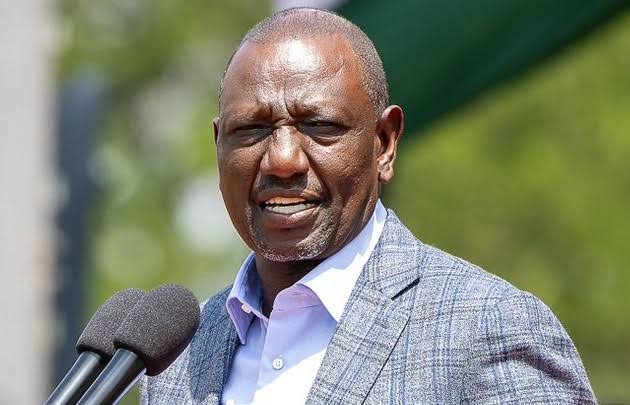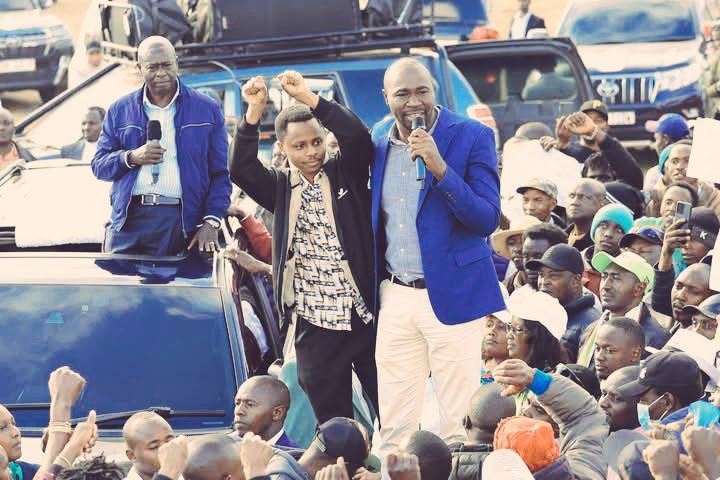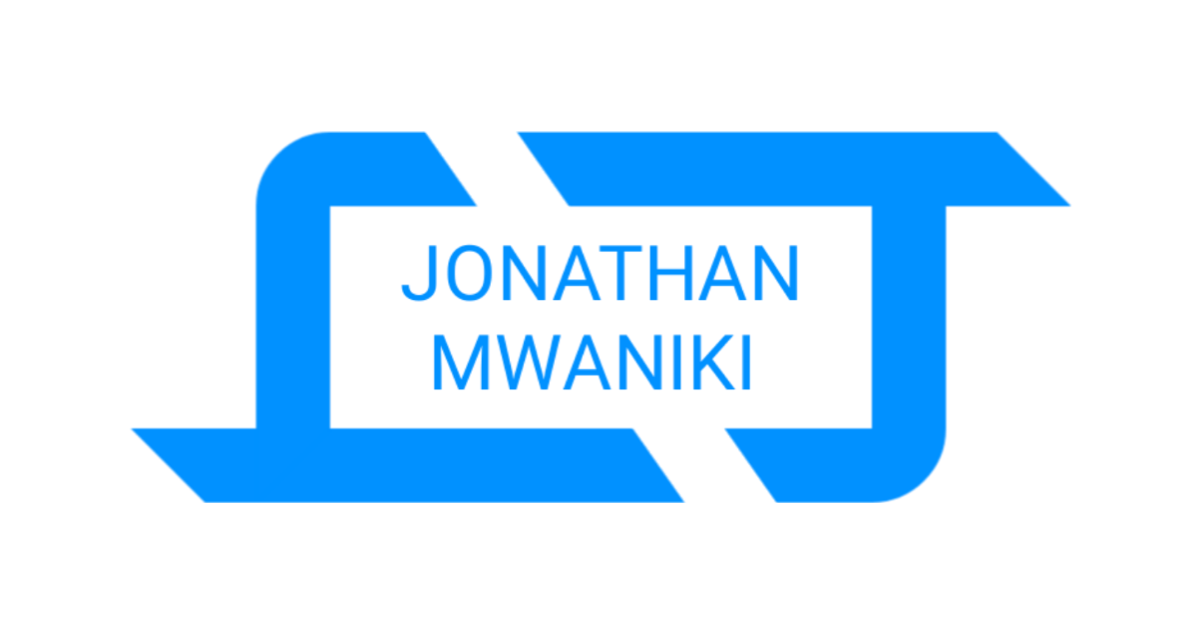President William Ruto, Kenya’s leader since 2022, has seized upon the African Nations Championship (CHAN) 2025, co-hosted by Kenya, Uganda, and Tanzania, as a golden opportunity to bolster his political image ahead of the 2027 general elections. By intertwining football, money, and politics, Ruto aims to project an image of national unity, infrastructural progress, and personal generosity, hoping to sway voters disillusioned by his administration’s handling of Kenya’s myriad challenges. However, this calculated strategy, relying on lavish financial incentives, controlled public appearances, and heavy-handed political branding, is likely to implode spectacularly, as it fails to address deep-seated public grievances and risks amplifying perceptions of Ruto as a disconnected, self-serving leader.
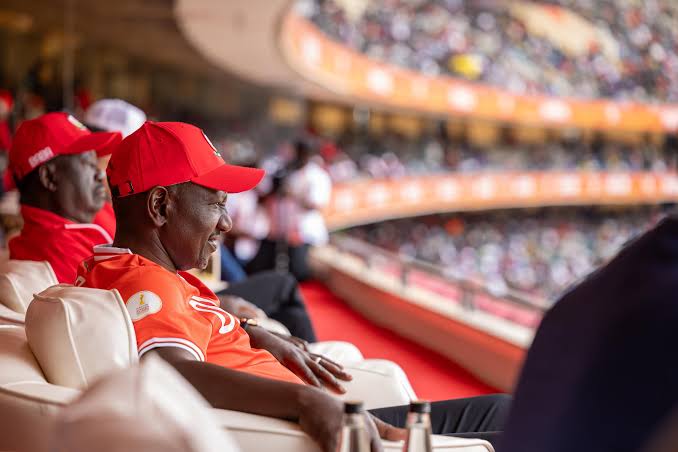
Ruto’s CHAN Strategy: A Political Playbook
Ruto has positioned himself as the face of CHAN 2025, leveraging the tournament’s regional spotlight to craft a narrative of competent leadership and national pride. In mid-July 2025, he conducted high-profile inspections of key venues, such as the Moi International Sports Centre in Kasarani and Nyayo National Stadium, emphasizing Kenya’s preparedness to host an international event. These visits were less about logistics and more about showcasing his government’s ability to deliver tangible infrastructure improvements, a key campaign promise from 2022. By tying his administration to the tournament’s success, Ruto seeks to claim credit for any positive outcomes, from upgraded facilities to a well-executed event.
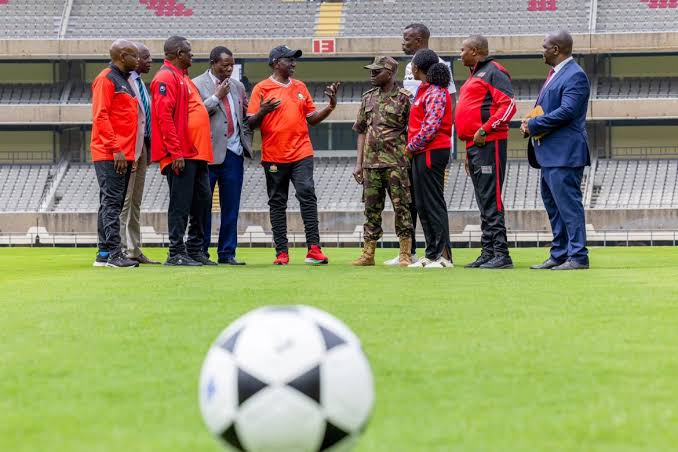
His engagement with the Harambee Stars, Kenya’s national team, further underscores this strategy. In late July, Ruto made surprise visits to the team’s training camp, urging players to “focus on winning the CHAN title” and promising unwavering government support. These appearances were carefully staged to portray him as a hands-on leader invested in national glory. Beyond rhetoric, Ruto has deployed significant financial muscle to incentivize performance, offering unprecedented rewards that dwarf previous sports budgets. Following Kenya’s victory over Morocco in early August 2025, he announced a staggering Sh600 million (approximately $4.6 million USD) prize pool for the team if they win the tournament. This includes Sh1 million per player for each win, Sh500,000 per draw, and additional bonuses like Sh2.5 million per player for reaching the quarterfinals. In a theatrical flourish, Ruto vowed to “fulfill any wish” of the players and technical team upon victory, including houses and other perks, funded partly by the Sports Ministry’s Sh70 million reward budget and supplemented by his personal commitments.
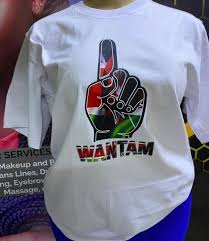
Behind the scenes, Ruto’s United Democratic Alliance (UDA) party has orchestrated a more manipulative approach to control the tournament’s optics. Reports indicate that UDA has purchased over half the tickets for key matches, such as Kenya’s opening game against the Democratic Republic of Congo, to fill stadiums with loyalists and prevent anti-government sentiment from surfacing. This move, allegedly prompted by National Intelligence Service warnings of potential “Ruto Must Go” or “One Term” chants, aims to create a curated atmosphere where support for the team doubles as endorsement of Ruto’s leadership. Social media discussions suggest that Ruto and his allies plan to weave CHAN’s successes, whether hosting prowess or on-field victories, into their 2027 re-election campaign, framing the tournament as a symbol of Kenya’s progress under Ruto’s stewardship.
The Cracks in Ruto’s Plan
While Ruto’s strategy is ambitious, it is built on a fragile foundation that ignores Kenya’s volatile socio-political and economic realities. Since 2024, Kenya has been rocked by widespread protests, driven by soaring taxes, rampant inflation, unemployment, and allegations of corruption within Ruto’s administration. The Finance Bill 2024, which introduced punitive tax measures, sparked nationwide unrest, with young Kenyans, particularly Gen Z, leading demonstrations that were met with police brutality, resulting in dozens of deaths and hundreds of injuries. These protests, far from abating, have evolved into a broader movement questioning Ruto’s legitimacy, with hashtags like #RutoMustGo gaining traction online and offline. His frequent international trips, including deploying Kenyan police to Haiti as part of a UN-backed mission, have been criticized as prioritizing global image over domestic crises, further eroding public trust.
Against this backdrop, Ruto’s CHAN gambit appears tone-deaf and opportunistic. The lavish financial rewards promised to the Harambee Stars have sparked immediate backlash, with critics pointing to unfulfilled pledges in other areas of sports and public welfare. For instance, the government has yet to settle a Sh50 million reward promised for the team’s Afcon 2025 qualification, and the women’s national team, Harambee Starlets, has faced delays in allowance payments. Funding cuts to free education programs and other sports disciplines have also drawn ire, with many Kenyans viewing the CHAN bonuses as a selective splurge of “looted cash” to buy favor rather than a genuine investment in sports. Social media posts have highlighted the disparity between the millions dangled before footballers and the struggles of ordinary citizens grappling with high living costs and inadequate public services.
Moreover, the team’s performance is far from guaranteed, and failure could amplify perceptions of Ruto’s mismanagement. Despite the financial incentives, reports suggest a “dark cloud” looms over the Harambee Stars due to internal pressures and high expectations. If the team uderperforms, the massive expenditure on bonuses and stadium upgrades could be framed as wasteful, further fueling public anger. Even a successful tournament may not translate into political capital, as Kenyans are increasingly skeptical of short-term spectacles designed to distract from systemic failures.
Political Manipulation and Public Pushback
Ruto’s attempt to control the tournament’s narrative through ticket purchases and restrictions on dissent reveals a deeper paranoia about public sentiment. The reported ban on political banners and the heavy security presence at matches suggest an administration desperate to avoid international embarrassment. However, these measures risk backfiring by alienating fans who see football as a neutral space, not a political battleground. Opposition figures and activists have already criticized the politicization of CHAN, arguing that Ruto’s overt involvement undermines the spirit of the game. Social media posts echo this sentiment, with some calling for fans to resist by smuggling anti-Ruto messages into stadiums or boycotting matches altogether.
Tribal divisions, a persistent fault line in Kenyan politics, further complicate Ruto’s unity narrative. Allies like Deputy President Rigathi Gachagua have stirred controversy by alleging ethnic exclusion in the Harambee Stars’ team selection, claims that resonate with segments of the population already skeptical of Ruto’s leadership. Such rhetoric undermines the tournament’s potential as a unifying force, instead reinforcing perceptions of favoritism and division within Ruto’s administration.
A Broader Context of Discontent
Ruto’s reliance on CHAN to boost his image misjudges the depth of Kenya’s discontent. The protests that began in 2024 are not merely reactions to specific policies but expressions of a broader crisis of trust in governance. Many Kenyans feel worse off than they did under Ruto’s predecessor, Uhuru Kenyatta, with economic stagnation and corruption scandals dominating public discourse. Ruto’s promises of houses and rewards for players ring hollow when juxtaposed against unaddressed issues like youth unemployment, healthcare shortages, and crumbling public infrastructure outside the polished CHAN venues.
Historically, Kenyan leaders have used sports to distract from political failures, but the current climate is less forgiving. The rise of a politically conscious Gen Z, amplified by social media, has made it harder for Ruto to control narratives. Posts on X reveal a growing sentiment that CHAN is a “circus” meant to divert attention from calls for accountability, with some users explicitly linking the tournament to Ruto’s re-election bid and urging voters to reject it. The opposition, led by figures like Raila Odinga, has capitalized on this discontent, framing Ruto’s actions as desperate attempts to cling to power.
Why It Will Fail Terribly
Ruto’s CHAN strategy is likely to collapse under the weight of its contradictions. First, the financial incentives, while headline-grabbing, expose his administration’s misplaced priorities in a country grappling with economic hardship. Second, the heavy-handed control of match atmospheres risks turning stadiums into flashpoints for protest, especially if fans circumvent restrictions to voice dissent. Third, the tournament’s success hinges on unpredictable factors like team performance, and any failure could transform Ruto’s promises into symbols of squandered resources. Finally, the broader socio-political context, marked by protests, tribal tensions, and eroded trust, means that a football tournament, no matter how well-executed, cannot paper over systemic failures.
Instead of rallying voters, Ruto’s actions may deepen his political isolation. The same social media platforms he hopes to leverage for positive PR are already amplifying criticism, with memes and hashtags mocking his “football politics.” If CHAN becomes a stage for anti-Ruto protests, as some predict, it could humiliate his administration on an international scale, reinforcing narratives of a leader out of touch with his people. Even a flawless tournament is unlikely to sway a populace demanding structural change over temporary distractions.
In conclusion, Ruto’s attempt to use CHAN 2025 as a political lifeline is a high-stakes gamble that misreads Kenya’s mood. By betting on football to salvage his image, he risks turning a national celebration into a lightning rod for criticism, hastening his descent into political irrelevance as the 2027 elections loom.
-(3).jpg)
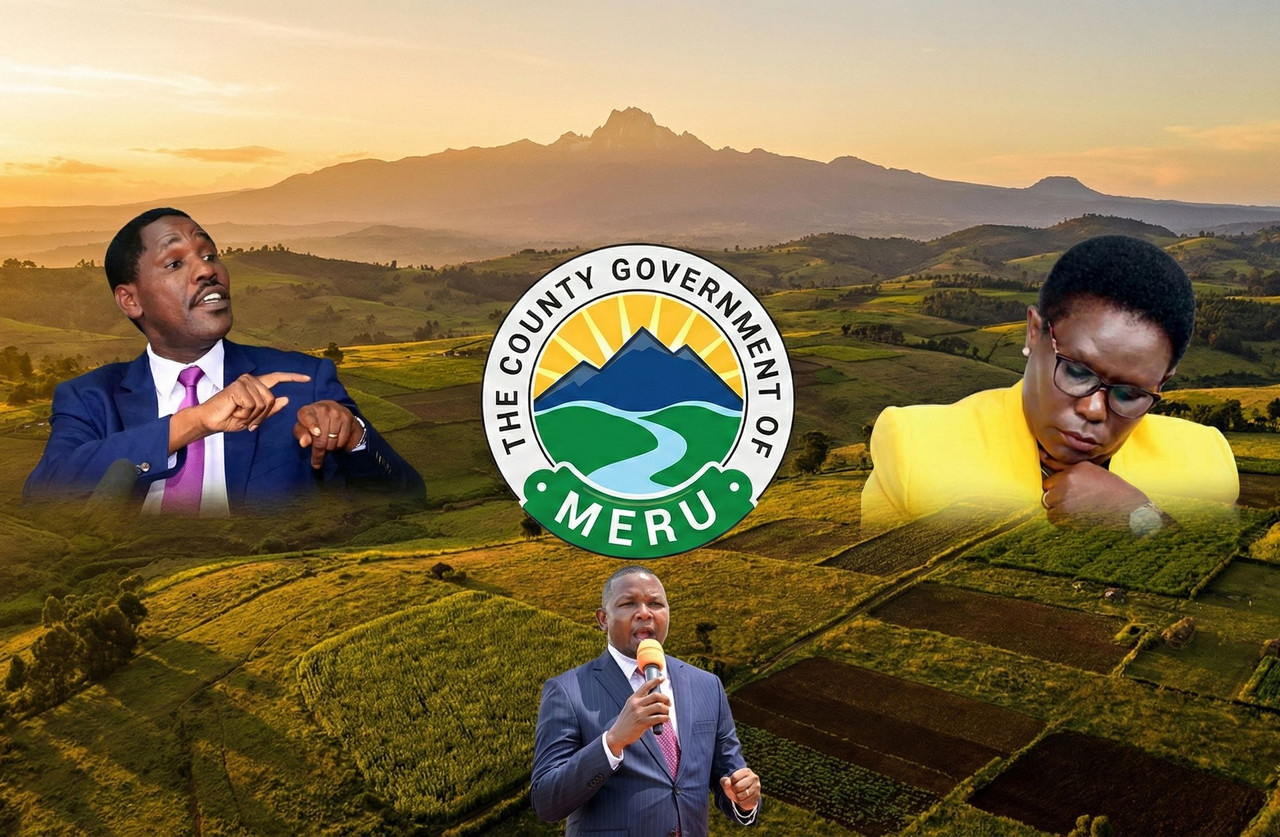
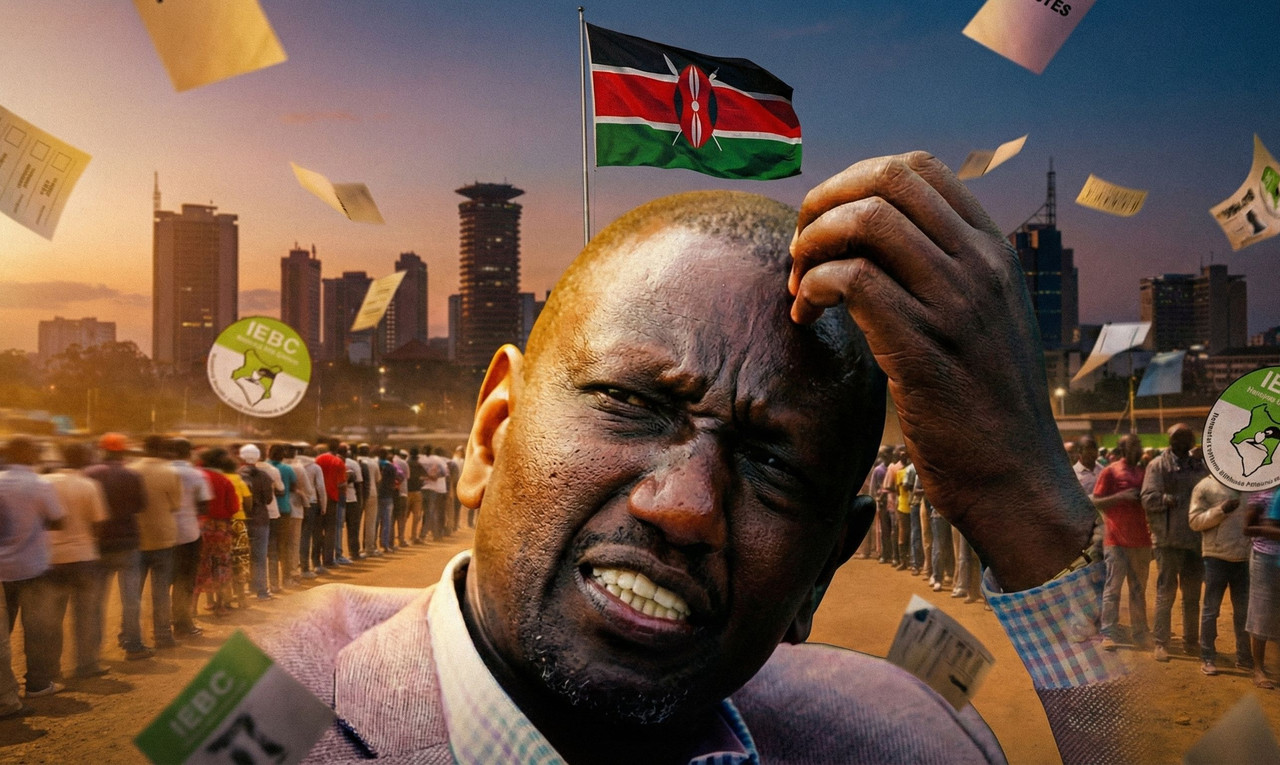
.jpg)
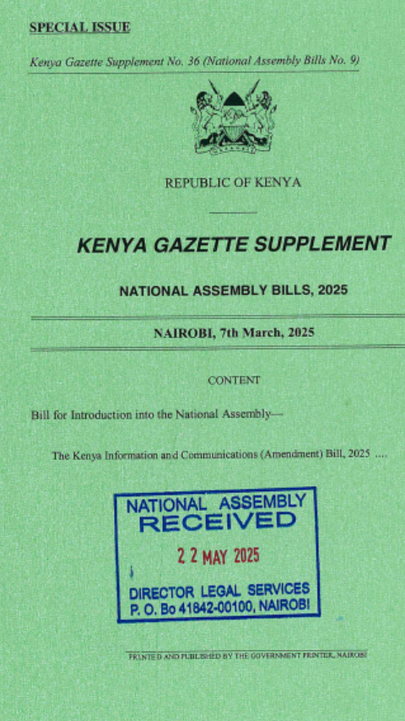
)
